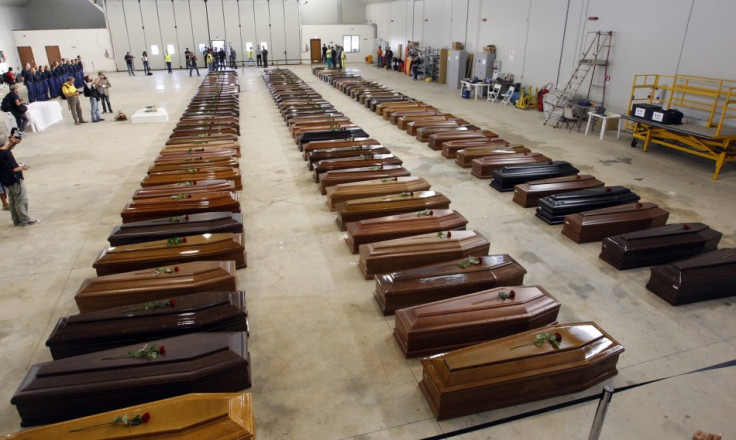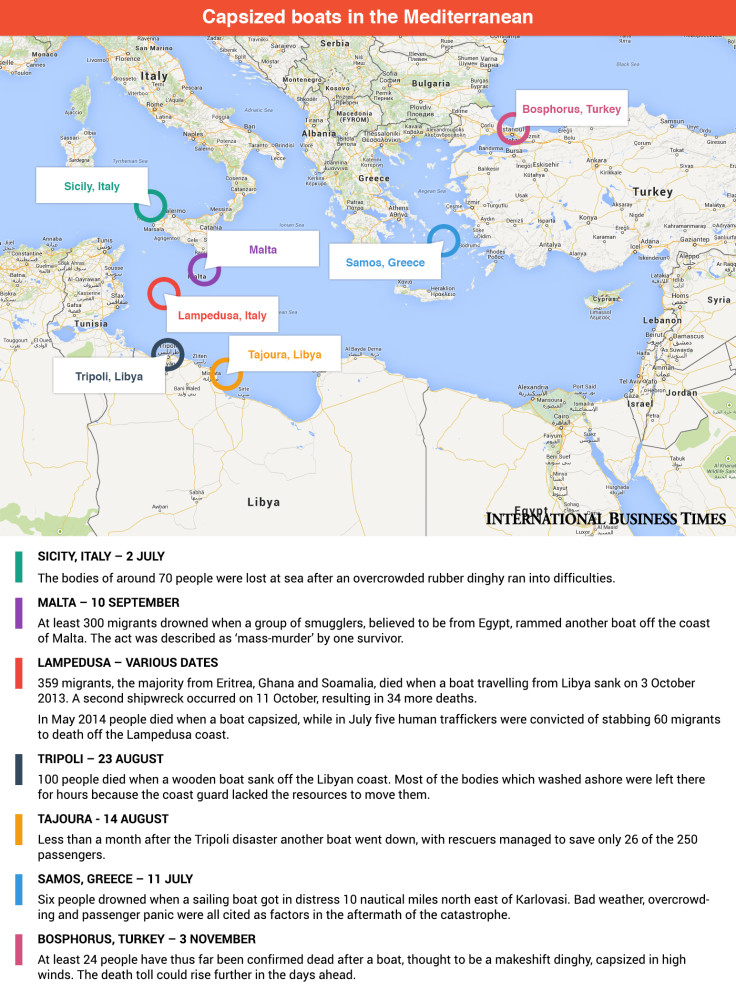Britain Must Extend its Hand to Migrants Dying to Reach These Shores

The world is facing the biggest refugee crisis since WWII. Conflict and oppression around the world are forcing unprecedented numbers of people to flee from danger, but the UK's response to those attempting to reach us remains one of flat denial.
Our government's announcement that it will pull out of European search and rescue operations in the Mediterranean was followed within days by news of the drowning of 24 Afghans, many of them children, off European shores. We know the simple fact that without search and rescue people will drown, and they will be Syrians, Eritreans, people fleeing the world's major conflicts.
Concern is constantly centred on 'protecting' our borders from these refugees, instead of protecting refugees from the atrocities that we know they have fled.
We seem to be trying to forget where people are coming from, ignoring the fact that when people are running for their lives, they will keep running. Our harsh policies will only make it more dangerous for them to do so, they will not end the wars and oppression that drive the migrants to run.
Most Britons support the principle of offering refuge to those fleeing persecution abroad, but in the current climate, many have begun to worry that the system is being abused by people who do not need our protection. The dangerous misconception that underlies this position is that asylum seekers come to the UK because we have too generous an asylum system, while nothing could be further from the truth.
The reality is that those very few asylum seekers who do make it to the UK to apply for protection (around 25,000 per year, making up less than 1% of immigrants to the country) are faced with an opaque, bureaucratically complex and extremely strict procedure, and the culture among Home Office decision-makers reviewing their applications is all too often one of automatic disbelief.

The myopic national debate on asylum results in a system that denies the principle of protection to many who need it. All too often, refugees are unfairly refused the right to stay, as demonstrated by the number of asylum refusals that are overturned on appeal.
One in four people who are initially refused asylum are eventually entitled to stay. This shows that in a staggering number of cases, the evidence has been ignored or misinterpreted by the Home Office, with the objective of removing the person, regardless of the reality of their need.
The message here is the same, whether it is letting refugees die at sea, or whether it is refusing to protect those who do make it, in the face of the evidence. The message is loud and clear and it says: 'Do not come here. We do not believe you.'
This message seems out-of-place from a country whose people have responded so generously, and with such compassion to reports about the Syrian civil war, who were so horrified by the stories of Isis atrocities in Iraq, who rally so commendably against the rape and genital mutilation of girls around the world. We know that the wars are happening, we know that the persecution is happening, and yet when the survivors knock at our door we say 'We do not believe you.'
The last time we faced this scale of displacement around the globe, the war was in Europe, and only last year we celebrated the 75<sup>th anniversary of the Kinderstransport, a programme that saved the lives of nearly 10,000 Jewish children in WWII by bringing them to safety in the UK. Our message of disbelief to today's asylum seekers is not only out-of-place, but an absolute denial of history.
Whether people flee by train across Europe, or by boat across the Mediterranean, we have, as we always have had, a legal and moral duty to protect them. As we try to look tougher and tougher, as we disbelieve, and send back, and let drown, at the cost of so many human lives, how will this government's policies be judged in another 75 years' time?
Zoe Gardner works for Asylum Aid, an independent charity working to secure protection for people seeking refuge in the UK from persecution and human rights abuses abroad. She previously worked for the European Council on Refugees and Exiles and the Race Equality Foundation.
© Copyright IBTimes 2024. All rights reserved.





